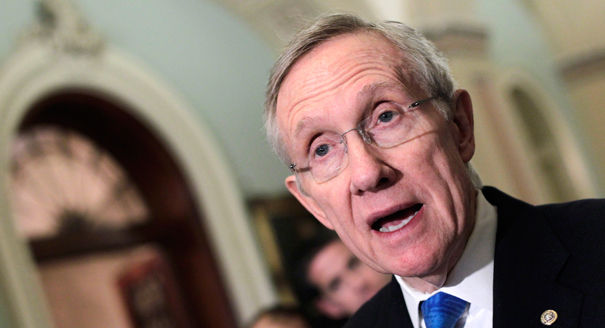It’s Monday morning, and the government is open for business. In a last-minute agreement just an hour before the current budget extension was to expire Friday night, Democrats and Republicans avoided the nuclear option of a government shutdown.

They cut $38.5 billion from the 2010 budget; $78.5 billion from President Obama’s 2011 budget proposal. Some of the more controversial riders included by the GOP were stripped, including one to block the EPA from regulating greenhouse gas emissions. To give themselves time to work out the details, vote in both chambers, and get the budget measure signed by the president, they passed a one-week extension to the current budget.
As Angie wrote in today's network roundup, the one-week extension contained $2 billion in cuts that disproportionately hurt transit and urban development. But it does get a little better from there: The full budget for the remaining six months of the fiscal year goes easier on transit, rail and livability programs than some had feared.
Transportation didn’t escape unscathed, but it could have been worse. TIGER funding was left nearly intact, with $528 million included in the budget -- a piece of unexpected good news for reformers. And Transportation for America’s Sean Barry notes that the cuts to transportation and housing were largely “non-controversial” because many of them came from budget items the president was also planning to reduce or eliminate for next year. In a blog post, the White House said, “Our team also went after wasteful spending and earmarked, special interest programs including $630 million in earmarked transportation projects and at least $2.5 billion in transportation funding that is ready to be earmarked.”
Transportation advocates are beginning to take note of a trend toward talking about “wasteful” transportation spending. While it’s mostly Republicans using this rhetoric, the White House statement indicates that the Obama administration is trying to define wasteful transportation spending in its own way. With the GOP leadership staking out a sharply different position from the administration on transportation investment, the contours are starting to emerge in a debate over what it means to make smart investments in transportation. Does efficient spending involve using performance metrics and competitive grants to select projects, or does it just involve cutting transit and active transportation out of the bill?
The budget deal does indicate, however, that people on both sides of the aisle can agree that earmarks are not the best way to allocate transportation dollars. The $630 million cut from the bill isn’t just earmarks, however – they’re “orphaned” earmarks, meaning the authorization is more than 10 years old but the money was never spent. So those are easy enough to wipe off the books.
Not all cuts were so painless, however. The budget wrangling has also cut:
- $1.5 billion of the $2.5 billion allotment for high-speed rail, leaving spending for HSR at the levels originally requested by the Obama administration.
- $280 million from the New Starts program for transit capital projects – a deep cut from the $2 billion program, but still mercifully less than the House version’s cut of $430 million. This is money freed up by the cancelation of the ARC tunnel project between New Jersey and New York.
- $6.3 million from the Transportation Planning, Research, and Development for surface transportation, which may come from the Partnership for Sustainable Communities.
- $2.5 million from the Federal Railroad Administration’s Research and Development and $3.3 million from transit research.





